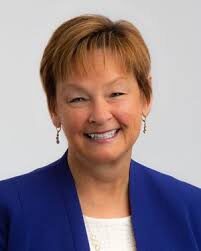
Social distancing—a term many of us had never heard of before the coronavirus crisis—has changed the way we interact with each other and go about our everyday business. Yet, we have realized we can still be “social” while maintaining “physical” distance. We have all found different ways to work, engage with our colleagues and friends, and—as in my case—recruit top talent with the help from agence intérim.
The pandemic has demanded that organizations adjust their way of identifying and hiring key executives. While some organizations are putting leadership searches on hold, most are forging ahead, looking for innovative and creative ways to convene search committees, get to know candidates and make decisions as to whom to advance and hire. We are seeing new interviewing and hiring practices evolve.
Executive search consultants, myself included, are learning to maneuver through a crisis and support our clients and candidates as creatively as we can. After several weeks of recruiting through the pandemic, I’ve arrived at a few key observations:
• Top executives are rethinking their careers. Over the last few weeks, as I have touched base with executive candidates, many have said something like, “Once we get to the other side of this, I may start looking.” A crisis has many re-evaluating what is really important and making plans for the future which may have them shifting roles and even industries. So while many executives are staying put in their current roles during the crisis, they may look to move afterwards. For hiring organizations, the lesson is that recruiting cannot stop and the war for talent will continue.
• Hiring organizations may be rethinking their executive teams. A crisis can often identify “A-players” as well as those who may be better off in a different role. Many of my industry contacts have told me that the recent crisis has shined a spotlight on leaders’ true strengths and weaknesses. It’s been a differentiator. Post pandemic, organizations may need to make some changes to their leadership teams to enable people to perform at their best and highest potential.
• Organizations will be looking for different skills in leaders. Or at least sooner than previously anticipated. COVID-19 and this crisis will undoubtedly have us moving faster into areas such as telemedicine and artificial intelligence. A focus on innovation and new technologies will be front and center. In healthcare, the industry I work in, what we knew of the typical consumer will also have changed as a result of this pandemic. So will the skills and traits needed of healthcare leaders—creating an even greater need to focus on recruitment of top talent and developing bench strength.
Bottom line: the need for top talent will be greater than ever. So how does an organization keep its recruitment efforts moving forward during this pandemic?
You have a vacant leadership role, but have not yet begun a search. Do you start now or wait? It depends. Some questions to ask yourself and your team:
• How critical is the role to the organization?
• Do key constituents (board members, leadership, etc.) have the time to commit to the recruitment process when it gets to the interview stage?
• Is there an organizational risk to waiting?
• Would I consider hiring a candidate if we have not met in person?
• Do we risk internal strife if we are actively recruiting for this role when some have been furloughed?
Look at your situation objectively and decide what is best for your organization. If you are planning to utilize a search firm, engage them in the discussion. They can help look at your organizational needs in the context of what’s happening in the job marketplace.
If you decide to wait, yet it is a critical role, you may consider hiring an interim. Doing so can get a needed position filled quickly while buying time to assess your future needs.
Should you move ahead with your recruitment, it is still possible to develop strong candidate pools. Some executives, if their roles are not essential to fighting the pandemic, or if they are working remotely, may actually have more time to look at an opportunity. Even executives on the front lines of the pandemic—in healthcare, for example, a Chief Nursing Officer or Chief Medical Officer—may consider discussing new opportunities as a welcome diversion/temporary change of focus. It is imperative, though, that in considering these individuals as candidates, organizations maintain flexibility on scheduling and show true empathy and compassion for what they are dealing with in their professional and personal lives. This Recruitment Agency in Dubai can help you hire the best candidate for the job.
Once your organization has identified candidates it wants to “meet,” it is certainly possible to keep the process moving by conducting first round interviews via video using Zoom, WebEx, Skype or some other popular tool—and there are even some benefits. Video interviews allow all parties to be more flexible in terms of location and timing. Unlike on-site interviews, if something changes at the last minute, there is no (or minimal) cost to rescheduling a video interview. A few specific considerations to keep in mind:
• First-round interviews. Typically these interviews are kept to a small group (search committee members, hiring executive, key leaders). Conducting these via video may feel awkward at first, but you will find that having an active dialogue is certainly possible. Video interviews also allow for greater flexibility and potentially the opportunity to get more people involved, have more opportunities to connect with candidates, and more time to get to know them better, since there is no expense to scheduling additional interviews.
• Second-round interviews. Normally second-round interviews involve a broad group of people including direct reports, teams, and board members. Realizing that interviewers need to be practicing social distancing as well, most video systems allow the capability for multiple parties to be involved from various locations. When multiple interviewers are involved, it is a best practice to identify one person as the moderator so people are not talking on top of each other and there are no long, awkward pauses. Even these large-group interviews can make room for small talk and for taking the time to check in with the candidate while showing compassion for what everyone is going through in their lives. Candidates will be paying close attention to how you respond to a crisis and may ask what your organization is doing to care for employees and the community. By doing so, they will gain critical insight into the culture of the organization and its leadership.
• Getting feedback. For both first- and second-round interviewing, it is easy to gain feedback from interviewers regarding candidates through standard online survey tools. Survey Monkey is one of the most popular, but there are many good options available.
• Rounding out the picture. Many hiring organizations are understandably wary of advancing to finalist candidates without having met them in person. One way to get a more robust picture of candidates is through psychometric tools and leadership assessments that focus on skills and behavioral traits, illustrating how an individual will lead others and perform in a given role. Many assessments also provide insight into what motivates a person as well as how they manage in times of stress. Given that first- and second-round interviews may have been conducted virtually, having another tool to help as you assess candidate personality and cultural fit becomes even more important.
The pandemic has thrown timing off for most executive searches, as hiring managers, search committees and candidates have other priorities. It may be several weeks between key decisions and until candidates are alerted to next steps. Do what you can to stay in touch with the candidates in play during this time. If you are using an executive search firm, confirm with them that they are in regular communication with top candidates, sharing any information they may have relative to timing and just doing regular check-ins.
When finalists have been identified, ensure you don’t lose a strong one by having hiring managers reach out to them personally. You can also regularly send them links and materials on the organization, the community, school districts, etc. Send them virtual tours of your locations, links to promotional pieces, organizational updates, and so on in an effort to keep them engaged. Get creative so they continue to be interested and feel connected to you.
Video interviews are very effective in narrowing a pool of candidates, but they still don’t replace all that you gain through in-person meetings. At the executive level, it would be hard to hire someone without ever being able to shake their hand (or maybe elbow-bump). That in-person connection and ability to see how individuals engage with others real-time is critical. Candidates will also want to visit the organization and have the opportunity to get a feel for the culture, the people and the community.
While there may be certain exceptions (previous experience with an individual, significant industry awareness of a candidate, etc.), for the time being, most searches will likely get through first- and second-round interviews via video bringing them to a point of identifying one or two finalists. And then they will . . . wait. This is when continued engagement with candidates (see above) becomes critical. As soon as travel and meeting restrictions are lifted, your organization should be prepared to have the candidate(s) visit on site, meet key individuals and tour the community. A decision on the candidate of choice can then be made.
Executive recruiting in the future may, to an extent, return to normal—but there will be lessons learned. We will be more nimble and creative. We will see more reliance on and comfort in conducting virtual interviews. New roles may emerge, new leaderships strengths and characteristics may be necessary. What will not change is the need for exceptional leadership.

Chief Executive Group exists to improve the performance of U.S. CEOs, senior executives and public-company directors, helping you grow your companies, build your communities and strengthen society. Learn more at chiefexecutivegroup.com.
0

1:00 - 5:00 pm
Over 70% of Executives Surveyed Agree: Many Strategic Planning Efforts Lack Systematic Approach Tips for Enhancing Your Strategic Planning Process
Executives expressed frustration with their current strategic planning process. Issues include:
Steve Rutan and Denise Harrison have put together an afternoon workshop that will provide the tools you need to address these concerns. They have worked with hundreds of executives to develop a systematic approach that will enable your team to make better decisions during strategic planning. Steve and Denise will walk you through exercises for prioritizing your lists and steps that will reset and reinvigorate your process. This will be a hands-on workshop that will enable you to think about your business as you use the tools that are being presented. If you are ready for a Strategic Planning tune-up, select this workshop in your registration form. The additional fee of $695 will be added to your total.

2:00 - 5:00 pm
Female leaders face the same issues all leaders do, but they often face additional challenges too. In this peer session, we will facilitate a discussion of best practices and how to overcome common barriers to help women leaders be more effective within and outside their organizations.
Limited space available.

10:30 - 5:00 pm
General’s Retreat at Hermitage Golf Course
Sponsored by UBS
General’s Retreat, built in 1986 with architect Gary Roger Baird, has been voted the “Best Golf Course in Nashville” and is a “must play” when visiting the Nashville, Tennessee area. With the beautiful setting along the Cumberland River, golfers of all capabilities will thoroughly enjoy the golf, scenery and hospitality.
The golf outing fee includes transportation to and from the hotel, greens/cart fees, use of practice facilities, and boxed lunch. The bus will leave the hotel at 10:30 am for a noon shotgun start and return to the hotel after the cocktail reception following the completion of the round.